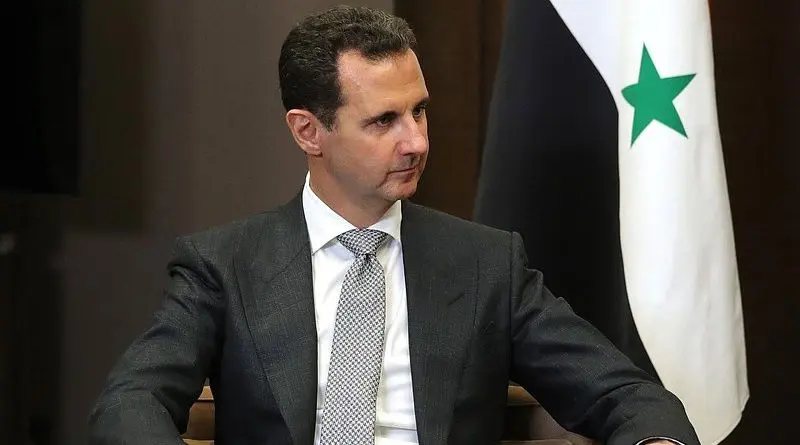Who Will Hold Assad Accountable For Chemical Weapons? – OpEd
By Arab News
By Kerry Boyd Anderson*
As new cases of the Assad regime using chemical weapons emerge, there are growing questions about whether Syria’s actions and the lack of serious response by other countries are badly eroding the global consensus against chemical weapons — and perhaps damaging broader norms and institutions that underpin the international system.
The Assad regime began using chemical weapons against its own people in 2012. In 2013, the US government, under Barack Obama, threatened military action against Syria for doing so. However, Obama was reluctant to engage in the Syrian war, and Moscow and Washington worked on a deal in which Syria joined the Chemical Weapons Convention (CWC), an international treaty that bans the possession and use of chemical weapons. Syria formally declared its stockpile, and the international community removed and destroyed those weapons. The deal noted that any future use of chemical weapons would have consequences, potentially including military force.
The Assad regime quickly violated the agreement and has continued using chemical weapons. In most cases, it uses chlorine gas, which is not subject to CWC declarations since chlorine is a dual-use chemical with non-military purposes; nonetheless, the weaponization of chlorine violates the CWC. In other cases, the regime appears to have used nerve agents.
Syria’s flagrant violations — and disingenuous denials — pose a direct challenge to the global norm against the possession and use of chemical weapons. Norms are rules by which most states agree to abide. However, if rules are not enforced, they lose meaning and influence, and the international system lacks a clear enforcer. The primary institutional mechanism for enforcing global treaties and norms is the UN Security Council. However, Russia has used its veto power as a permanent member of the Council to protect Syria and impede the ability of investigators to establish who is responsible for using chemical weapons in Syria.
When the UN system is paralyzed, enforcement lags. The US has struggled to determine its own role. Obama was criticized for setting a “red line,” then failing to act when Assad crossed it. In 2016, President Donald Trump authorized a US missile strike on a Syrian airbase in response to a chemical weapons attack against civilians, but it was too limited to persuade the regime to stop using chemical weapons. Various countries have imposed sanctions but with limited effect.
What should the international community do? Rebecca Hersman, director of the Project on Nuclear Issues at the Center for Strategic and International Studies and previously US deputy assistant secretary of defense for countering weapons of mass destruction, told me: “The US has largely only looked at the use of force … but what we need is a much bigger menu of consequences.” If they can’t be imposed through the UN Security Council, they should still be implemented by several countries acting in concert, she said.
One potential example is a new effort led by France to gather and preserve evidence of chemical weapons use in Syria and “name and shame” individuals and entities linked to the chemical weapons program.
Meanwhile, Syria’s actions and the relative lack of consequences threaten to undermine the CWC and other global norms. “When you look at a system of arms control and nonproliferation that seeks to ban classes of weapons, if you continually face repeated use, it cannot help but call into question the efficacy of that ban and the normative underpinnings that support it,” Hersman said.
For now, most of the world continues to accept that chemical weapons should never be used. Syria is the only party to the CWC that is violating its prohibitions. CWC states have also made important progress in destroying the vast majority of the world’s declared chemical weapons stocks, said Alicia Sanders-Zakre, a researcher with the Arms Control Association. However, she said Russia’s defense of Syria had eroded the unity of CWC members.
So far, Syria has used chemical weapons against its own people and not against other states. While this is a clear violation of the CWC, it is likely that other countries would act far more strongly against the Assad regime if it used such weapons against another state. The world is more likely to shrug its shoulders over a government’s actions against its own people. Syria poses a threat to the CWC but an even greater threat to the concept of “responsibility to protect.” The Syrian situation raises pressing questions about the effectiveness of global norms in an age when it is unclear who will enforce the rules.
*Kerry Boyd Anderson is a writer and political risk consultant with more than 14 years’ experience as a professional analyst of international security issues and Middle East political and business risks. Her previous positions include deputy director for advisory with Oxford Analytica and managing editor of Arms Control Today. Twitter: @KBAresearch

